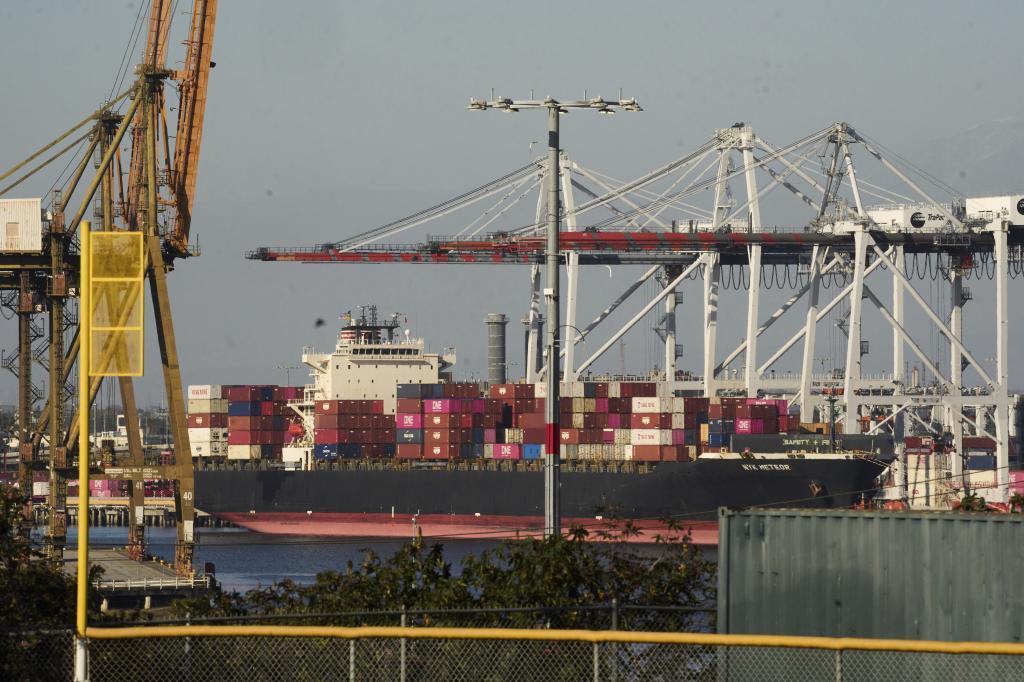After a marathon of negotiations on neutral ground to calm the 2.0 trade war reignited by Donald Trump, the United States and China have announced in a joint statement a significant temporary tariff reduction on their imported products, pausing their exchange of blows and materializing a major de-escalation between the world's two largest economies.
Trump raised tariffs on China to 145%, while Beijing retaliated with 125% levies on US imported products. This Monday, Washington announced that it will reduce tariffs to 30% for 90 days, while Beijing will lower them to 10%.
This is the first trade agreement between the US and China, reached after two days of negotiations in Switzerland. Speaking from Geneva on Monday morning, US Treasury Secretary Scott Bessent said, "both parties will reduce their tariffs by 115%" after agreeing to a 90-day pause.
More details on the tariff reduction were provided by US Trade Representative Jamieson Greer, who also participated in the talks and explained that the agreement reached was based on the "reciprocal tariff" imposed by his country on April 2 and subsequent escalations of the trade war.
"China and the United States ended up representing 125% of their imports. In addition, the United States imposed a 20% tariff related to fentanyl (which is why the total tariff level rose to 145%). This last duty, imposed by Donald Trump to encourage China to reduce the flow of fentanyl, continues on its own course," Greer emphasized.
The Trump administration has justified on some occasions that many of the tariffs against China were due to Washington's fight to combat the fentanyl supply chain, which starts in Chinese territory with companies from the Asian giant sending the necessary chemical precursors to Mexico for drug cartels to manufacture the lethal synthetic opioid that then crosses the US border.
On Sunday, after finishing the second day of negotiations in Geneva, Greer was the first to highlight "substantial progress" in the talks with the Chinese delegation, led by Vice Premier He Lifeng, Beijing's top economic official.
Chinese state media opened their portals on Monday with statements from their envoy to Switzerland, who also pointed to these advances in the negotiations. "A series of important consensuses have been reached, as China and the United States have taken significant steps to resolve their differences through dialogue and consultation on an equal footing," He stated.
The Chinese Vice Premier announced that both countries had agreed to establish an economic and trade consultation mechanism, a key communication channel to avoid misunderstandings and curb an even harsher tariff war.
Before the negotiating teams spoke on Sunday, Trump seemed eager to be the first to announce that Washington and Beijing were getting along well in the face-to-face in Geneva. The president revealed that both parties had negotiated a "total reset in a friendly but constructive manner," reaching many agreements.
Investors have welcomed the de-escalation in the trade war, with Dow Jones futures rising around 1% on Sunday night, while S&P 500 futures increased by 1.3% and Nasdaq Composite futures by 1.7%. Asian markets traded higher on Monday.
European stock markets also rose after China and the United States announced the tariff cut, as did the value of the US dollar and the Chinese yuan.
Despite the announced truce, in Beijing, where they remain on alert and, especially internally, want to maintain a tough stance, the media spokespeople of the ruling Chinese Communist Party (CCP) continue to use their favorite phrase in recent months ("China will fight to the end if the US insists on the trade war") and reiterate that it was the US side that insisted on sitting down to negotiate with China.
"Beijing's decision to engage in dialogue with Washington was motivated by its responsibility as a global power and its commitment to safeguarding international economic stability," read an editorial in the People's Daily, the official newspaper of the CCP. "Dialogue is always better than confrontation, but negotiations should never be reduced to unilateral concessions. China has the patience, resilience, and confidence to stand firm and fight to the end."
Both superpowers have now returned to square one, where they were before Trump unleashed the tariff war in April, which virtually paralyzed trade between the two countries. Just before the negotiations in Switzerland, Beijing announced that last month exports to the US dropped by over 20% compared to the previous year.
